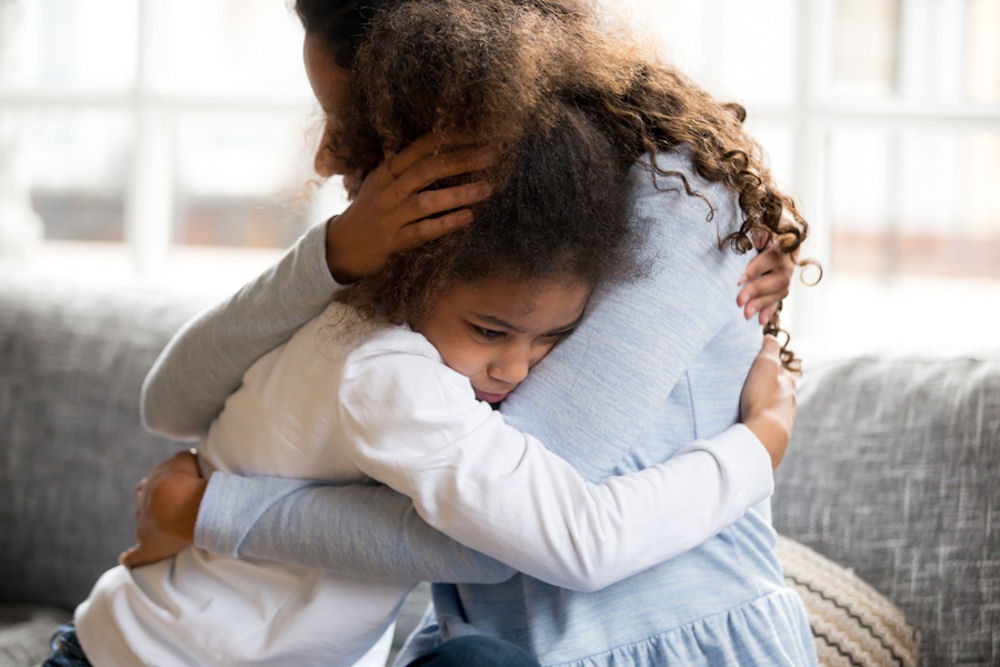Family is supposed to be a source of love, support, and security. But for many, it can also be a source of pain, confusion, and conflict. A dysfunctional family is one in which unhealthy dynamics, poor communication, and toxic behaviors are prevalent, creating an environment where members struggle to thrive emotionally and mentally.
While every family faces challenges, these problems are often persistent and deeply ingrained in dysfunctional families. This can lead to negative patterns of interaction that affect everyone involved. While growing up in a dysfunctional family can leave deep scars, it’s important to remember that healing is possible. Understanding the impact of dysfunction is the first step toward breaking the cycle and creating healthier family relationships.
This can include a consistent lack of open, honest dialogue, use of passive aggression, yelling, or silence. Misunderstandings and unresolved conflicts can also result in emotional disconnection or avoidance of difficult topics.
Rigid roles such as the “scapegoat,” “hero,” or “caretaker” within a dysfunctional family can prevent individuals from developing a strong sense of self. Overburdening one member with responsibility for others’ emotional needs can cause lasting damage to individual psychology.
Emotional neglect in a family can take many forms. It can be the failure to recognize or respond to emotional needs, or a lack of affection, attention, or validation. Emotional abandonment or distance from family members can be a direct effect or a form of abuse itself.
One or more family members may exert power over others in a dysfunctional family, which can take the form of overbearing parenting or emotionally controlling behavior. Manipulative tactics like guilt-tripping or gaslighting may take place in a dysfunctional family across different roles.
This classic sign of a dysfunctional family can include frequent arguments or verbal abuse, tension that never fully resolves, and ongoing, unresolved resentments between family members.
Physical violence or threats of harm may result as a consequence of a dysfunctional family. Emotional abuse (including belittling, shaming, or humiliation) may also result, in addition to bullying behavior or intimidation.
An often overlooked signature characteristic of dysfunction, this form of abuse involves gray areas defining personal space and emotional needs. Family members may become overly involved in each other’s lives, sometimes resulting in a lack of respect for individual autonomy.
Substance abuse or untreated mental health problems can affect the family dynamic in dysfunctional ways. Unstable behavior due to addiction or untreated emotional struggles may cause conflict, as well as the neglect of responsibilities or unhealthy coping mechanisms.
The inability to provide stable, nurturing guidance for children can frequently lead to a dysfunctional setting. Overly permissive or overly strict parenting styles can cause damage to the family dynamic, as well as erratic consistency in discipline or emotional support.
Failure to address past traumas can perpetuate dysfunction. Generational cycles of unhealthy behavior, such as abuse or neglect, can produce lingering effects that lead to an inability to heal from past wounds and ongoing emotional pain.
What are the Effects of Living in a Dysfunctional Family?
Living as part of a dysfunctional family can have the following effects:
Emotional Distress
- Chronic feelings of sadness, anxiety, or depression
- Difficulty trusting others or forming healthy emotional connections
- Persistent low self-esteem or a sense of worthlessness
Poor Mental Health
- Heightened risk of developing mental health disorders, such as clinical depression, anxiety, or post-traumatic stress disorder (PTSD)
- Difficulty managing stress or emotions effectively
- Higher vulnerability to substance abuse or other harmful coping mechanisms
Inability to Form Healthy Relationships
- Struggles with establishing boundaries in friendships and romantic relationships
- Tendency to attract or stay in toxic relationships due to learned patterns
- Fear of intimacy or difficulty communicating needs in relationships
Unhealthy Coping Mechanisms
- Reliance on escapism, such as substance abuse, overeating, or isolating
- Difficulty managing or processing emotions healthily
- Chronic stress leading to burnout or physical health issues
Identity Issues
- Struggles with a sense of self or feeling “lost” due to unstable family roles
- Difficulty developing a clear, positive identity apart from family dynamics
- Tendency to conform to roles (e.g., caretaker, scapegoat) that hinder personal growth
Trauma and Long-Term Impact
- Lingering emotional trauma that can affect future life choices and behaviors
- Difficulty healing from past wounds, leading to persistent psychological pain
- Repeating dysfunctional patterns in adulthood, often without awareness
Cognitive and Behavioral Issues
- Impaired decision-making and problem-solving skills due to inconsistent or unhealthy guidance
- Risk of developing maladaptive behaviors, such as aggression or avoidance
- Difficulty regulating emotions or managing conflict in adult life
Social Isolation
- Withdrawal from friends, social events, or support systems due to lack of trust or fear of judgment
- A tendency to keep personal struggles hidden out of embarrassment or shame
- Difficulty asking for help or relying on others for support
Academic and Career Challenges
- Struggles with focus, motivation, or self-discipline in school or work environments
- Emotional or psychological challenges that interfere with professional or academic success
- Increased likelihood of underachievement or giving up on personal goals due to lack of confidence or support
Difficulty Managing Change or Adapting
- Resistance to change or fear of the unknown due to instability at home
- Anxiety (possibly ongoing) about personal growth or making life changes that might disrupt familiar patterns
- Difficulty adapting to new environments, such as moving away or starting new relationships
What are Some Types of Dysfunctional Family Patterns?
 Dysfunctional family patterns come in many forms, but certain dynamics tend to recur in households that are rife with unhealthy behaviors, emotional struggles, or conflicts. Some common dysfunctional family patterns include:
Dysfunctional family patterns come in many forms, but certain dynamics tend to recur in households that are rife with unhealthy behaviors, emotional struggles, or conflicts. Some common dysfunctional family patterns include:
One family member is unfairly blamed for all the family’s problems. This person is usually seen as the troublemaker or the cause of dysfunction, even if they are just reacting to the environment around them.
The “hero” of a family (often the oldest child) takes on the responsibility of maintaining the family’s image of being “perfect.” They might excel academically or socially to compensate for the dysfunction within the household.
The lost child is typically a quieter, more withdrawn family member who avoids conflict and tries to stay out of the way of the chaos. This person often feels invisible or ignored, with their emotional needs unmet.
One family member (typically the parent) becomes the caretaker or enabler, taking on excessive responsibility for others’ emotional needs and trying to maintain peace at any cost.
In enmeshed families, personal boundaries are a gray area and family members are overly involved in each other’s lives. Individuality is often discarded for the sake of family cohesion, and it can be difficult for family members to form separate identities.
Dysfunctional families often have one or more parents who are emotionally absent or physically abusive. In these cases, the parent may neglect their children’s needs, be unable to provide emotional support, or engage in harmful behaviors like physical violence or substance abuse.
In some dysfunctional families, conflict is constant and unresolved. Family members are regularly hostile, argumentative, or competitive, making it difficult to foster feelings of safety and security.
Generational Cycles: Why Dysfunctional Families Repeat Patterns
Dysfunctional family dynamics often create patterns that are passed down from one generation to the next. This phenomenon, known as generational cycles, occurs when unhealthy behaviors, emotional patterns, or ways of coping with stress are repeated by children who grow up in a toxic family environment.
Learned Behavior
Children observe, internalize, and view their parents and other family members’ actions in various situations as normal. If a child grows up in an emotionally negligent, abusive, or conflict-filled environment, they tend to repeat these same actions as they reach adulthood.
Unresolved Trauma
When children experience trauma (whether through childhood abuse, loss, or neglect), they may carry that unresolved pain into adulthood. This trauma can manifest as emotional unavailability, excessive control, substance abuse, or violence, creating a toxic environment for their children.
Family Loyalty
In many families, there is an unspoken expectation that children will uphold family values, traditions, or roles, even if they are unhealthy. For instance, children may feel pressured to perpetuate the family’s toxic dynamic in the name of loyalty or maintaining harmony, despite the negative effects on their well-being.
Breaking the Cycle: How to Heal from a Dysfunctional Family
Healing from a dysfunctional family is a challenging but achievable journey that involves confronting painful emotions and breaking harmful patterns that affect self-esteem, relationships, and emotional regulation.
The first step is acknowledging the dysfunction in the family and recognizing how these unhealthy behaviors may have shaped an individual’s life. Self-awareness and reflection, often through individual therapy or journaling, are vital for uncovering these patterns and starting the healing process.
Therapy plays a crucial role in recovery, providing a safe space to process trauma, address underlying emotional struggles, and develop healthier coping mechanisms. Approaches like cognitive-behavioral therapy (CBT), trauma-focused therapy, and family therapy can help you redefine identity, establish boundaries, and break free from negative cycles.
Learning to set and maintain healthy boundaries is another critical aspect of healing, as dysfunctional families often fail to respect personal space or emotional needs. While healing from a dysfunctional family takes time, it ultimately leads to healthier relationships, a more stable sense of self, and a more fulfilling life.
Heal From Addiction at Principles Recovery
 At Principles Recovery, people seeking recovery are supported with compassionate care, evidence-based treatments, and a structured environment designed to foster long-term health and well-being. We view healing from addiction as a holistic process that requires attention to the mind, body, and spirit. With individualized care, a comprehensive treatment approach, and a strong support network, our clients can take meaningful steps toward overcoming addiction and achieving lasting recovery.
At Principles Recovery, people seeking recovery are supported with compassionate care, evidence-based treatments, and a structured environment designed to foster long-term health and well-being. We view healing from addiction as a holistic process that requires attention to the mind, body, and spirit. With individualized care, a comprehensive treatment approach, and a strong support network, our clients can take meaningful steps toward overcoming addiction and achieving lasting recovery.
Contact us today to begin your journey to a healthier mind and outlook today.
